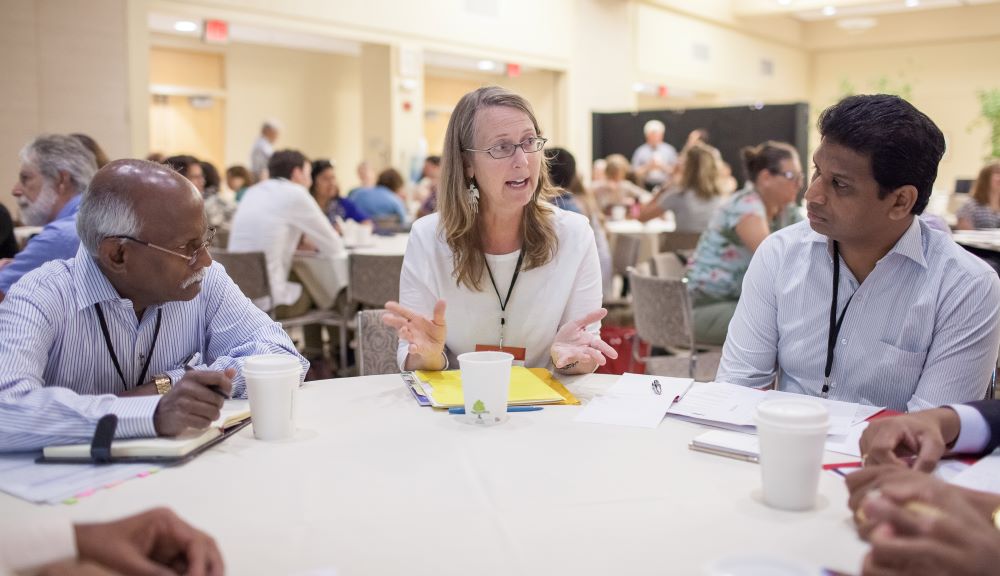Institute on PBL Alumni Share their Success Stories

The 10th anniversary of the Institute on Project-Based Learning gives us an opportunity to reflect on the impact this program has had on educators—and, by extension, on students and communities—across the United States and around the globe. But don’t just take our word for it. Hear what our past participants are saying.
“We are of the mind that the sage-from-the-stage model of teaching feels outdated, and that our students engage more when they’re working either individually or collectively on a project. Once they graduate, many of our students will have to devise projects of their own since the pathway for musicians is so variable. Therefore, this approach is also very practical career training.
“For the faculty who participated [in the Institute], revelatory is not too strong a word. Many are already down the road of project-based teaching, but the Institute provided them specific tools, metrics, assessment mechanisms, and confidence to be more systematic and thorough in their approach.”
—Benjamin Sosland, Provost and Dean of the Faculty, New England Conservatory
Enrollment: 750
Location: Boston, Massachusetts
Type: Private, specialized program
“As a community-serving and community-facing campus, we want to help our students gain the knowledge and the skills to engage fully with their own experiences and their own communities. PBL is one particularly effective way to help students bridge potential gaps between their university education and their lives beyond campus.
“Many faculty already were incorporating PBL elements into their courses and others were hoping to add PBL. The Institute was particularly helpful for our cross-campus team to have a common conversation about PBL, [which allowed us] to more clearly identify how PBL was happening on our campus and how we could guide our administration to provide support for PBL on campus.”
—Emily Luxon, Associate Professor of Political Science, University of Michigan Dearborn
Enrollment: 8,000
Location: Dearborn, Michigan
Type: Public, regional commuter
“The main reason College of the Canyons is attracted to project-based learning is because of its emphasis on solving ‘wicked’ problems, while making an impact on the campus and/or in the community. Project-based learning also approaches people, places, and problems using an asset-based approach rather than a deficit model.
“Our college has participated in the Institute four times. What drove all four teams was the need to learn how to infuse a problem-solving, design-thinking, and action-based teaching and learning style to complement curricular and co-curricular settings, as well as transfer and career education fields of study.”
—Patty Robinson, Faculty Director of Civic and Community Engagement Initiatives, College of the Canyons
Enrollment: 33,905
Location: Santa Clarita, California
Type: Community college
“Project-based learning has been proven to cultivate student learning as well as provide students with a sense of agency and identity. As a small college primarily centered around the student experience, we believe that this practice fits well with our mission and goals.
“We attended the Institute so that we could be trained in best practices in PBL and use that knowledge to implement our program most effectively. [We learned] the importance of communicating to students the reasoning for using PBL as an instructional method; how to effectively form project student teams and help them discover how to utilize each other’s strengths to collectively solve problems; [and] the importance of scaffolding students’ experiences in PBL.”
—Brian McFarland, Associate Vice President of Academic Affairs, Morningside University
Enrollment: 1,300
Location: Sioux City, Iowa
Type: Private, four-year liberal arts